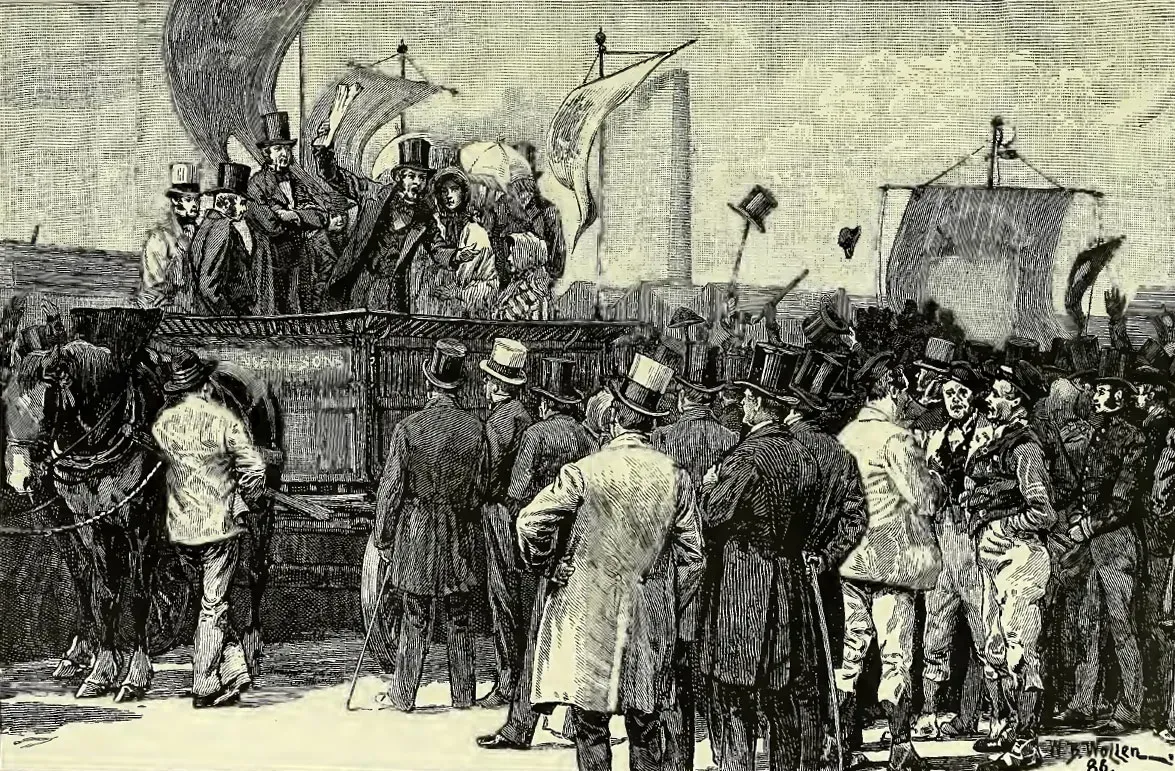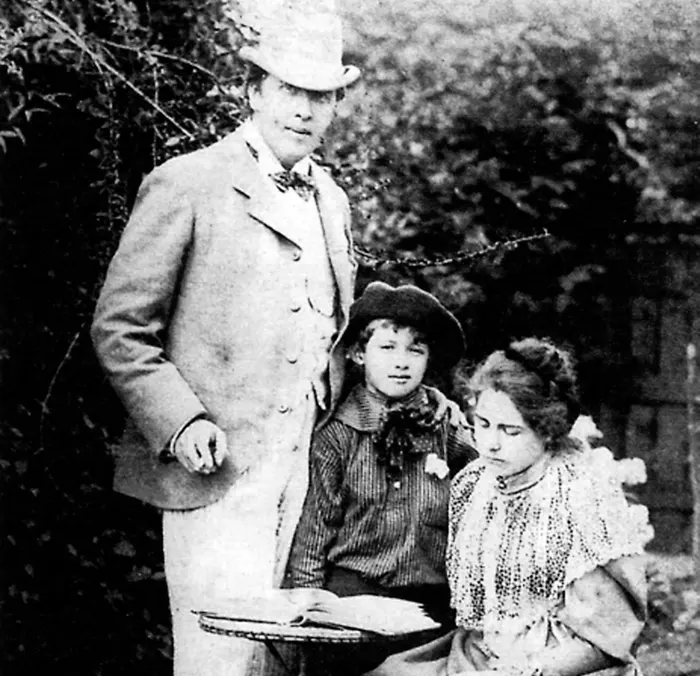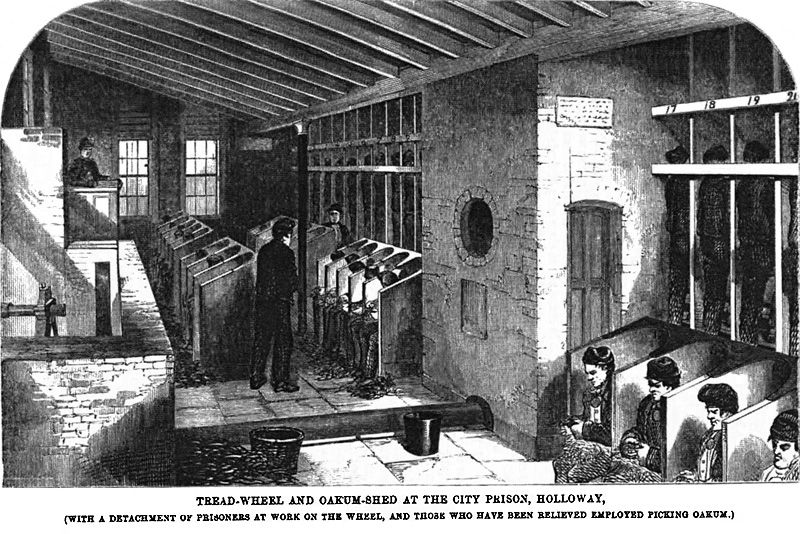Oscar Wilde: Biography, Author, Playwright, History
Society in 19th Century England
Society in 19th-century England was ruled by wealthy families who lived comfortably and efficiently. Human relationships were determined by rank, status, and wealth. England started the industrial revolution. It was the age of industrialization, which gradually replaced workers with factories and machinery. This exceedingly increased exports and imports due to mass production. As a result, England’s economy became filthy rich.
The Industrial Revolution improved the living standards for the middle class and above. Although there were slightly increased wages, it resulted in tragic living and working conditions for the working class. Working-class families migrated to industrial lands during the Industrial Revolution to find better jobs. Because of this, the factory owners had to build housing at an expeditious speed.

The demand in the towns for accommodation was so high that often, one room would house an entire family. The houses were built in tight spaces, back-to-back, sharing a rear wall with another house or factory. There were no plumbing systems. As a result, disease spread rapidly because many sewages would come in contact with lakes, the people’s primary water source. In addition, the working class had long working hours. Heavy air pollution significantly affected their lungs, caused by inefficient coal-burning methods. In 1873, an average of 700 Londoners died of smog per week.
Wilde saw all these inequalities in the society that he lived in. As much as ‘The Importance of Being Earnest’ is an incredible comedic play, his main goal was to criticize the community he lived in. ‘The Importance of Being Earnest’ maintains its relevance in the present as it informs the audience of the problem of wealth inequality. His play embodied the Victorian Upper Class during the 1800s to allow his audience to compare and reflect upon their own lives. Utilizing humor to ensure his audience is entertained by grabbing their attention enabled a clear and straightforward message to spread amongst his audience that not everything in Victorian society should have happened the way it did.
Oscar Wilde’s Family
Oscar Fingal O’Flahertie Wills Wilde was born in Dublin, Ireland, on October 16, 1854. His father, Dr. William Robert Wills Wilde, was an eminent eye surgeon. He founded St. Mark’s Ophthalmic Hospital in Dublin in 1844, a non-profit hospital to treat the city’s poor. In 1863, he was appointed oculist to Queen Victoria, and he was knighted for his work as a medical advisor for the Irish censuses in 1864.
Wilde’s mother, Jane Francesca Elgee, was an imaginative poet and skilled linguist. Her English translation of Wilhelm Meinhold’s Sidonia the Sorceress profoundly influenced Wilde’s writing later in his career. She also shared an interest in Irish folklore, which can be seen in Oscar’s name: ‘Oscar’ and ‘Fingal’ were names from Irish legend; on the other hand, ‘O’Flahertie’ was the name of the ancient kings of West Connaught.

Student Life
Wilde shared many of his parents’ characteristics and interests. He attended Portora Royal School at Enniskillen, where he loved Greek and Roman studies. In fact, he was awarded the school’s prize for top classic students. At his graduation in 1871, Wilde was awarded the Royal School Scholarship to attend Trinity College in Dublin. At the end of his first year at Trinity College, he placed first in the school’s classics examination and received the college’s Foundation Scholarship, the highest honor awarded to undergraduates.
Upon graduating in 1874, Wilde received the Berkeley Gold Medal as Trinity’s best student in Greek and the Demyship scholarship for further study at Magdalen College in Oxford. While in Oxford, Wilde consistently received first-class marks and excelled at school. Wilde’s first attempt at creative writing was in 1878 when he graduated. The poem he wrote, “Ravenna,” won the Newdigate Prize for the best English verse composition by an Oxford undergraduate.
Marriage
On May 29, 1884, Wilde married a wealthy English woman, Constance Lloyd. They had two sons, Cyril, born in 1885, and Vyvyan in 1886. However, Constance’s indigent shape and carriage during pregnancy nauseated Wilde, who was growing restless under the restrictions of marriage that homosexuality was against the law. Not soon later, sexual relations between Wilde and Constance came to an end. She was to be replaced by Lord Alfred Douglas.
Imprisonment
At the time when he was most successful, Wilde had an affair with a young man named Lord Alfred Douglas, whom he had met in 1891. Wilde’s and Douglas’s openness about their active homosexuality outraged Douglas’s Father, the Marquis of Queensberry. Having already failed to frighten Wilde off this relationship with his son, on February 18, 1895, he sent a card to them writing ‘For Oscar Wilde, posing somdomite’, a misspelling of the word ‘sodomite’.
Wilde’s solicitor and friends suggested he do anything, but Wilde decided to support his young lover and began a libel case. However, this decision ruined his life. At the trial, Queensberry and his lawyers presented evidence of Wilde’s homosexuality, including his love letters to Douglas. As a result, the case was dismissed, and Wilde was sentenced to 2 years in prison.

Remembering Oscar Wilde
Wilde died of meningitis on November 30, 1900, at 46. Meningitis is a bacterial or viral infection of the membranes surrounding the brain and spinal cord caused by an ear or sinus infection. If not treated, meningitis can cause brain swelling and permanent disability, coma, and death.
Oscar Wilde is best known for his acclaimed works The Picture of Dorian Gray and The Importance of Being Earnest. ‘The Picture of Dorian Gray’ was his only novel and served many purposes. One purpose of this novel is to exhibit how individuals can gradually deteriorate because of the evil in the human soul. Another goal highlights the role of artists in society, the meaning of art, and the value of its beauty. However, this novel was criticized as immoral because it offended the moral sensibilities of many Victorian critics. Nonetheless, it is now considered one of his most noteworthy works.
As much as ‘The Importance of Being Earnest’ is an incredible comedic play, his main goal was to criticize the society he lived in. ‘The Importance of Being Earnest’ maintains its relevance in the present as it informs the audience of the problem of wealth inequality. His play embodied the Victorian Upper Class during the 1800s to allow his audience to compare and reflect upon their own lives. Utilizing humor to ensure his audience is entertained by grabbing their attention enabled a clear and straightforward spread amongst his audience that not everything in Victorian society should have happened the way it did.

